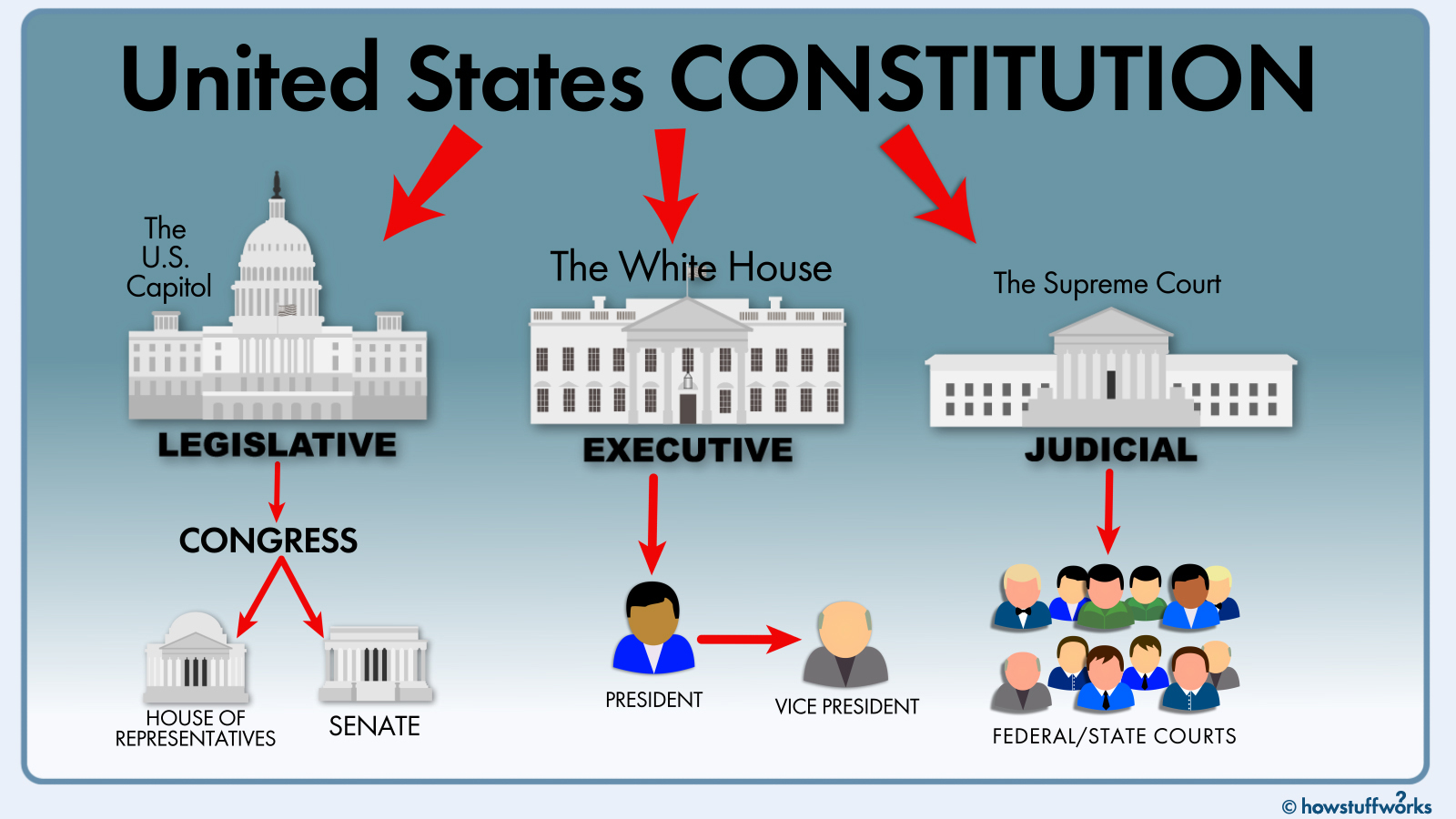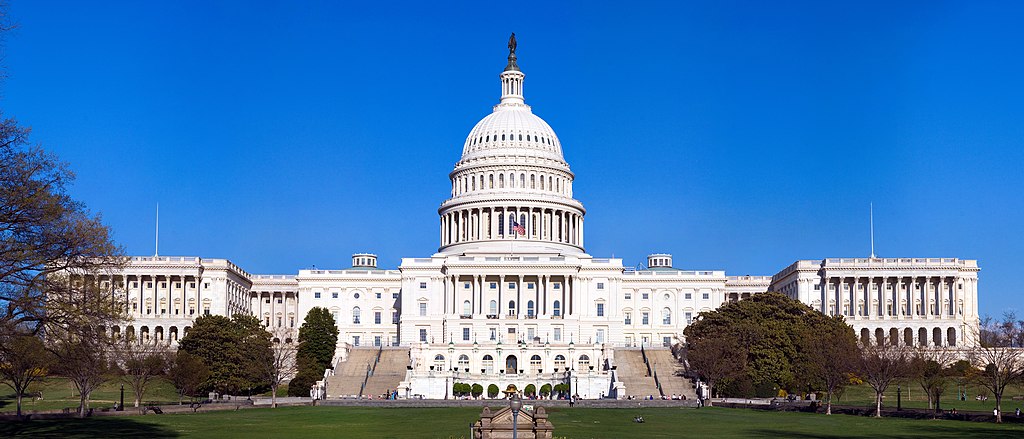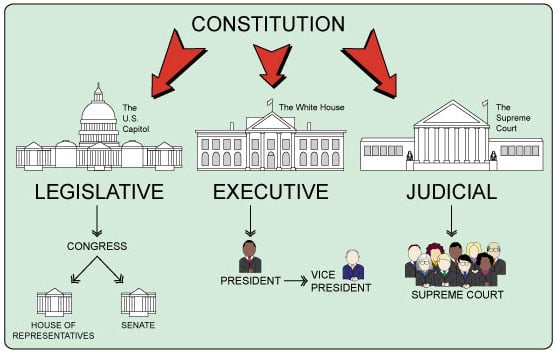What Happens During Government Operations: A Complete Guide to How the U.S. System Works
What Happens During Government Operations: A Complete Guide to How the U.S. System Works
The Three Branches Overview | Daily Government Operations | Legislative Process | Executive Functions | Judicial Operations | Checks and Balances | Frequently Asked Questions

Understanding what happens during government operations is crucial for every American citizen. The United States government operates through a sophisticated system of three interconnected branches, each with distinct responsibilities that work together to serve the public and maintain democratic principles.
The Foundation: Three Branches of Government
The U.S. Constitution establishes three separate but equal branches of government, each designed to prevent the concentration of power in any single institution. This separation of powers ensures that government operations remain balanced and accountable to the people.
:max_bytes(150000):strip_icc()/checks-and-balances.asp-final-e7a1ad5d6c3b474c815c5d4761517105.png)
Legislative Branch: The Law Makers
The legislative branch, consisting of the House of Representatives and Senate, serves as the primary law-making body. During daily operations, Congress drafts, debates, and passes legislation that affects every aspect of American life. Members hold committee meetings, conduct hearings, and work with constituents to address national issues.
Executive Branch: The Law Enforcers
Led by the President, the executive branch implements and enforces laws passed by Congress. This branch includes federal agencies, departments, and the military, all working to execute government policies and provide essential services to citizens.
Judicial Branch: The Law Interpreters
The judicial branch, headed by the Supreme Court, interprets laws and ensures they align with the Constitution. Federal courts handle cases involving federal law, constitutional issues, and disputes between states.
What Happens During Daily Government Operations

Government operations occur continuously, with thousands of federal employees working around the clock to maintain essential services. Here's what typically happens:
Policy Implementation
Federal agencies translate laws into actionable policies. The Department of Education implements educational standards, the EPA enforces environmental regulations, and the Treasury Department manages fiscal policy. Each agency operates with specific mandates and budgets approved by Congress.
Public Service Delivery
Government operations include delivering services that citizens rely on daily. Social Security processes benefit payments, the Postal Service delivers mail, and the National Weather Service provides forecasts. These operations continue regardless of political changes, ensuring stability in essential services.
The Legislative Process in Action
During government operations, the legislative process follows a structured path from idea to law. Bills are introduced, referred to committees, debated, voted on, and sent to the President for signature or veto. This process can take months or years, reflecting the deliberative nature of democratic governance.
Committee Work
Much of the real legislative work happens in committees, where specialists examine bills in detail. Committees hold hearings, gather expert testimony, and modify legislation before it reaches the full chamber for a vote.
Executive Branch Daily Functions
The executive branch's daily operations span national security, economic policy, and regulatory oversight. The President meets with advisors, makes policy decisions, and represents the nation internationally. Meanwhile, cabinet departments manage their respective areas of responsibility.
National Security Operations
Defense and intelligence agencies operate 24/7 to protect national interests. The Pentagon coordinates military operations, while intelligence agencies monitor global threats and provide security briefings to decision-makers.
Judicial Branch Operations
Federal courts operate continuously, hearing cases and interpreting laws. The Supreme Court hears approximately 60-80 cases per year, while lower federal courts handle thousands of cases involving federal law, constitutional questions, and interstate disputes.

The Checks and Balances System
What makes government operations truly effective is the system of checks and balances. Each branch can limit the power of the others, preventing any single branch from becoming too powerful.
How Branches Check Each Other
- Legislative checks: Congress can impeach officials, override vetoes, and control budgets
- Executive checks: The President can veto legislation and appoint federal judges
- Judicial checks: Courts can declare laws unconstitutional and review executive actions
Government Operations During Crises
During emergencies, government operations adapt to meet extraordinary circumstances. Emergency powers may be invoked, resources redirected, and coordination between branches intensified. Recent examples include responses to natural disasters, economic crises, and public health emergencies.
Frequently Asked Questions
How long does it take for a bill to become law?
The legislative process varies significantly. Simple bills may pass in weeks, while complex legislation can take months or years. The average bill that becomes law takes about 6-8 months to complete the entire process.
What happens if branches of government disagree?
Disagreements between branches are resolved through constitutional processes. Courts may rule on disputes, Congress can override presidential vetoes, and the impeachment process provides accountability for officials who exceed their authority.
Do government operations continue during shutdowns?
Essential government functions continue during shutdowns, including national security, law enforcement, and programs like Social Security. Non-essential services may be suspended until funding is restored.
How can citizens influence government operations?
Citizens can participate through voting, contacting representatives, attending public meetings, participating in public comment periods for regulations, and engaging in peaceful protests and advocacy.
The Impact of Government Operations on Daily Life
Government operations affect virtually every aspect of American life, from the safety of food and medicines to the maintenance of highways and the protection of civil rights. Understanding these operations helps citizens make informed decisions and participate effectively in democratic processes.
Economic Impact
Government operations influence economic stability through monetary policy, regulatory oversight, and public spending. Federal Reserve operations, tax collection by the IRS, and regulatory enforcement by agencies like the SEC all play crucial roles in maintaining economic order.
Stay Informed, Stay Engaged
Share this article to help others understand how government operations work! Knowledge of these processes empowers citizens to participate meaningfully in democracy.
Understanding government operations is the foundation of active citizenship. By knowing how the system works, Americans can better hold their representatives accountable and participate in the democratic process that shapes their future.